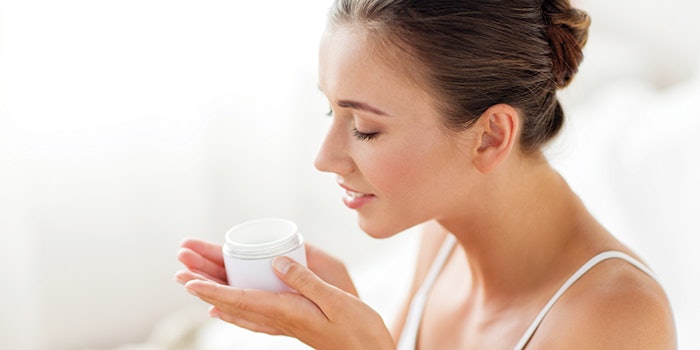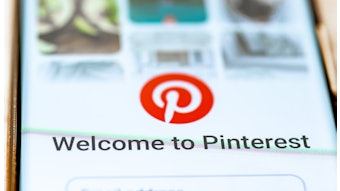
Read the full article in the May 2021 digital edition. . .
Stress, whether direct or perceived, can have a significant impact on skin health, and stress can be defined in a number of ways. One of the most popular and widely accepted definitions is: “Stress arises as a result of events exceeding individual perceived ability to cope.”This definition emphasizes the person. It is a personal perception of events as overwhelming, rather than the nature of the event, per se. Skin response to psychosocial stress is complex and governed by bidirectional communication between the nervous, endocrine and immune systems. This response is modulated by central and peripheral pathways, with the mediators produced shaping altered skin physiology, including impaired wound healing, skin barrier function and immunity.1
Stress Reducing Modifiers
We all need human interaction. Having reported on the benefit of human touch in the past,2 it is time to revisit the meaning for human health in times of isolation. Touch has a significant impact on our psychological and physical well-being. The neurophysiological wiring for affective touch perception has been attributed to C-tactile (CT) afferent fibers that respond optimally to soft and slow strokes—evoking pleasure related to tactile stimuli in the brain. A gentle touch is associated with oxytocin release, further promoting social bonding. However, CT-targeted stimulation triggers oxytocin release only when touch is perceived as positive by the individual.3
‘Touch Hunger’
Prominent British scientists studying affective touch came together to discuss the implications of lack of touch for the benefit of the public in times of epidemic.4 Touch is, for most people, a meaningful and grounding experience; the need for touch exists below the horizon of consciousness.
Before birth, the fetal nervous system can distinguish its own body from the mother’s. The concept of self is rooted in touch and the human body is reliant on caregivers to satisfy the body’s core needs.5 Adults may not comprehend the importance of touch and can feel something is missing but cannot identify that touch contributes to loneliness.6 However, people touch with close friends and family more than they realize.
There is a parallel with primates in having a core set of five friends7, 8 who do their grooming together—this is the original form of social touch. In both primates and humans, these intense coalitions act as a buffer, protecting the individual against the dangers in the world. People have different needs and boundaries, not everyone suffers from a lack of touch but its total absence in times of stress contravenes the hard wiring that regulates our body since infancy.
Touch is a modulator that can temper the effects of stress and pain, both physical and emotional. Lack of touch has been associated with greater anxiety. In times of high stress, touch from others helps people cope better, similar to the calming effect of cortisol. In high-stress states, it can feel as if our bodies can barely contain emotion and feel we need others to hold us. Touch gives the brain permission to delegate its resources for coping, which relaxes the body and helps alleviate stress.
The CT afferent fibers that register gentle stroking touch have been studied since 1995, when discovered in humans. The neurons in the skin of all social mammals transmit slow electrical signals to the emotional processing parts of the brain, playing a critical role in developing the “social brain” and our ability to withstand stress.9 The highest density of neurons across the body occurs in parts humans cannot touch ourselves, such as the shoulders and back. Stimulation of these neurons releases oxytocin and dopamine, which reduces cortisol levels and regulates mood. One study confirmed that even gentle, slow stroking from a stranger can reduce feelings of social exclusion.10
Humans only need gentle touch intermittently. In the absence of human closeness, people can derive some benefit of feeling touch and soothe themselves by watching affection on the screen. The brain codes multisensory experiences in multiple ways: humans can “feel” the pain and pleasure of others just by “seeing” them. When stroking another person, humans engage systems that would be activated when being stroked.5
In relation, social closeness has been shown to reduce the negative effects of stress on skin barrier recovery as well as reduce self-reported stress. For example, one study showed being present with a person going through the unfamiliar procedure of tape-stripping positively affected skin repair.11
. . .Read more in the May 2021 digital edition. . .
References
- Thompson, A.R. and Montgomery, K. (2018, Apr). Stress and more stress: the importance in skin disease of worrying about what others think. Br J Dermatol 178(4) 821-822. https://pubmed.ncbi.nlm.nih.gov/29668105/
- Steventon, K. (2020, May 1). Epidermal evolution: Rhythm, stress and touch response. Cosmet Toilet 135(5) 50-54. https://www.cosmeticsandtoiletries.com/research/biology/Epidermal-Evolution-Rhythm-Stress-and-Touch-Response-569986931.html
- Portnova, G.V., et al. (2020, Jul). Perceived pleasantness of gentle touch in healthy individuals is related to salivary oxytocin response and EEG markers of arousal. Exp Brain Res 238 2257-2268. https://link.springer.com/article/10.1007/s00221-020-05891-y
- Morgan, E. (2021, Jan 24). Lost touch: how a year without hugs affects our mental health. The Guardian. Available at : https://www.theguardian.com/lifeandstyle/2021/jan/24/lost-touch-how-a-year-without-hugs-affects-our-mental-health?
- Katerina Fotopoulou’s Lab. Available at: https://www.fotopoulou.com/
- Prof Francis McGlone: school of psychology—biography, publications, professional. Liverpool John Moores University. Available at: https://www.ljmu.ac.uk/about-us/staff-profiles/faculty-of-health/school-of-psychology/francis-mcglone
- Robin Dunbar—research summary. Experi Psych. Available at: https://www.psy.ox.ac.uk/team/robin-dunbar
- Dunbar, R. (2011, Apr 25). Friends to count on. The Guardian. Available at: https://www.theguardian.com/science/2011/apr/25/few-people-dunbars-number
- Pawling, R., Cannon, P.R., McGlone, F.P. and Walker S.C. (2017, Mar 10) C-tactile afferent stimulating touch carries a positive affective value. PLOS One 12(3). https://doi.org/10.1371/journal.pone.0173457https://journals.plos.org/plosone/article?id=10.1371/journal.pone.0173457
- Gentle touch soothes the pain of social rejection. (2017, Oct 18). University College London (UCL). Available at: https://www.ucl.ac.uk/news/2017/oct/gentle-touch-soothes-pain-social-rejection
- Robinson, H., et al. (2017, Jul). The role of social closeness during tape stripping to facilitate skin barrier recovery: Preliminary findings. Health Psychol 36(7) 619-629. https://pubmed.ncbi.nlm.nih.gov/28277705/











